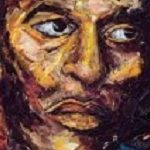
The Political-Pedagogical Force of Fanon and the Wretched of the Earth.
Reflections from the Personal and from Latin America Today.
Comments presented at the special session of the Caribbean Philosophical Conference commemorating the 50th anniversary of the passing of Frantz Fanon, held at the Malcolm X and Betty Shabazz Memorial Center, NYC, October 2, 2011
In many places in Latin America today, particularly those outside the confines of westernized academia, people first ask the permission of the ancestors before they publically speak. The ancestors are not thought of as the dead, but as the living in another form, as those that continue to walk with us, related not necessarily by blood, but by vision, political project, and social commitment.
Without a doubt, in this space in which we are gathered today one can feel the presence of the ancestors and elders that are Malcolm X and Betty Shabazz, but also those of Frantz Fanon and Steve Biko, present as well in their children who sit among us. I respectfully ask their permission to share these reflections and words, and thank Nelson Maldonado-Torres for inviting me to be a part of this emotionally charged, momentous, and historical encounter.
Today’s event is to commemorate the fifty years since Frantz Fanon’s passing and since the publication of his Wretched of the Earth. One way to celebrate not just the legacy and importance of Fanon, but his continuing presence, is to give testimony to how his thought, work, and praxis have impacted us and how they continue to live on today. That is, how they push in each of one of us forms of struggle, learning, unlearning and relearning, and transformation in our heads, in our souls and hearts, and on the ground.
It is from this perspective and stance that I wish to share some reflections with regard to the political-pedagogical force of Frantz Fanon in my own life and formation over the last 40 years, and in the context of the lived processes of decolonization and social transformation occurring in Latin America today.
My first political-pedagogical encounter with Fanon was in 1971, soon after the English translation of Wretched of the Earth became available. This text became the guiding tool to stimulate discussion and debate between the SDS-Students’ for a Democratic Society chapter I was involved with at the time and a cell of the Black Panthers.
Our collective reading of Fanon brought to the fore the constitutive role of race and dehumanization in colonial-imperial struggles, something that the traditional Left in the United States and elsewhere, neglected to see and consider in it’s thought and actions then, but also, one could argue, continues to be neglected in large part today. The text forced people to define their position and commitment ; while many chose to negate Fanon’s admonishments, a few, like myself, found meaning in his arguments and consequence in his political-pedagogical challenge. I refer here not only to the unlearning and relearning required in decolonization and social transformation, but also the unlearning and relearning required in addressing white privilege and in working in alliance and co-struggle.
Fanon and the Wretched of the Earth pushed me to define my position, to begin to confront at the personal and socio-political levels the defining role of race, and move toward a commitment and stance that, over the years, has come to be crucial in defining and shaping my self and my life project.
My second political-pedagogical encounter with Fanon and this text was in the 1980s, in the context of collaborative work with the Brazilian pedagogue Paulo Freire. Others and myself were able to negotiate with Harvard University, where Paulo was at the time (living and teaching in exile), for him to spend a semester a year for three years at the University of Massachusetts at Amherst where I was finishing my doctorate and teaching. During this period, I had the privilege of working closely with Paulo, co-facilitating with him dialogic seminars with Puerto Rican activists, students, and community members where Wretched of the Earth was a central text.
It was through Paulo’s re-reading of Fanon, and in the context of understanding the colonial condition of Puerto Ricans in the U.S., that he began to rethink out loud his Pedagogy of the Oppressed. A rethinking reflected in his last books : Pedagogy of Hope and Pedagogy of Indignation in which he also comes to re-see Brazil as an African nation, but in which he much more clearly and directly dialogues with Frantz Fanon.
Those who have read Pedagogy of the Oppressed may recall Freire’s somewhat timid citing of Fanon. Here, Freire assumed that his “oppressed” and Fanon’s “damnes” or “wretched of the earth” were one and the same. Yet the readings done in the context of the politics of US communities of color, and most specifically of Puerto Ricans as colonial subjects, and after an important lived experience in Guinea Bissau, pushed distinct political-pedagogical imperatives in Freire ; the intertwine of race-racialization and dehumanization began to take on a new significance. This experience still remains vivid. For me, the simultaneous dialogue with Freire, Fanon and with the community remains a central pillar in my own political-pedagogical formation. Here, Fanon’s force as a pedagogue became much more apparent to me.
The third political-pedagogical encounter is much more recent and comes in the context of Latin America, and most specifically Ecuador, where I have lived for the past 17 years, accompanying social movements and the struggles and processes of and for change. In this place, Fanon’s Wretched of the Earth affords important lessons today not only for decolonization but also for, and in a related sense, rethinking the national question.
In 2008 Ecuador initiated a historic project of rethinking and refounding society, nation, and State. The formation of a national Constituent Assembly made up, not of political parties or elected party officials, but members of civil society interested in and committed to profound change, pushed forth a new radical Constitution that names a plurinational and intercultural State. In the surrounding debates and discussions, some of which I was privy to as an invitee to the Assembly and as a member of an unofficial advisory team to an Afroecuadorian assembly woman, the question of the national was central. The consideration of Afroecuadorians within the past and present national project was of particular significance given the fact that Afrodescendants had no official recognition in Ecuador until 1998 ; their humanity and existence was, beginning with the system of kidnapping and enslavement until very recent times, continually put in doubt and subject to negation.
In this context, Fanon and the Wretched of the Earth once again are of political-pedagogical utility. The reading and re-reading of this text affords ever-new insights on revolutionary projects, the national as question and project, and on decolonization as a continual process of learning, unlearning, relearning. Its reading, for example, by Afroecuadorian lawyers in a class I just recently taught on the application of Afro rights in light of the new Constitution and the plurinational intercultural State, was crucial in raising once again the concern of dehumanization and its interrelation with the structures of race, racism and racialization, constitutive elements of the coloniality of power still present. Photocopies of his text circulate among Afro leaders and activists, Fanon not as an “iconic” figure or referent, but again as a political-pedagogical guide, facilitator, and tool useful for “reading” and comprehending the struggles and processes of the present, where the past and future are, without a doubt, inextricably intertwined. As Fanon the pedagogue once said : “to unlearn that imposed and assumed through colonization and dehumanization, and the relearning to be men and women.” Fanon in this context is one of the elders.
It is the pedagogy of Frantz Fanon and Frantz Fanon as a pedagogue that I wish to recall today. A pedagogy and a pedagogical stance that, in essence and foundation, are of the decolonial ; a decolonial pedagogy of sorts grounded in three key processes and components :
- In affirmation and in articulation as a form of co-relationality that pushes a thinking and acting “from” and “with” ;
- In humanization as liberation, as the constructing of a radically different collective existence -or “re-existence” as the Afrocolombian Adofo Albán has described it-, all of which point to decolonizing visions, philosophies, and practices of LIFE and living ;
- In collective hope and love, two components so central to Frantz Fanon’s work, so necessary for radical nation building, and so central to a decolonial project.
In the fifty years since Fanon’s passing to the other side and since the first publication of the Wretched of the Earth, both continue to live on, challenging us to not give up, to not become complacent, and to take arms, albeit symbolic, social, political, epistemic, and most of all pedagogical ones. Fanon, the decolonial pedagogue, Fanon the elder whose words continue to guide and challenge us in the path to unlearn and relearn, to think and act from and with the struggles still present today for humanization, liberation, and decolonization.
______________________________________________
[1] Intellectual-activist long involved in processes of social justice, struggle, and change first in the U.S. and in the last 17 years in Ecuador and Latin America


